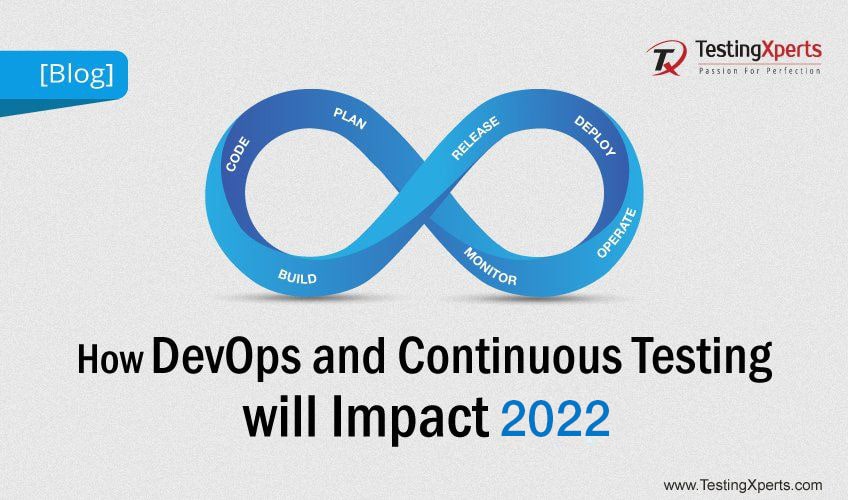Recommended Blogs
How DevOps and Continuous Testing will Impact

Businesses nowadays have not just exposed most of their internal applications to the customer, but have also developed additional software that outspreads and complements those applications. Software failures have severe business consequences, which is why application-related risks have become evident constituents of a business’ public financial filing. As a result, enterprises are embracing comprehensive software testing techniques for their applications.
Table of Contents:
1. How Did 2023 Embrace Change?
2. Faster Release Cycles Will Require DevOps and Continuous Testing
3. IoT and Cross-platform Engagement Will Require More Devices and More Applications
4. Conclusion
In 2023, we saw remarkable growth in adoption of agile methodologies such as ATDD and BDD. Besides this, organizations have left legacy tools behind, supporting faster and agile-ready testing. This move emulates the need to cater to every role that touches continuous testing such as development, testing, or operations.
In 2023, organizations will witness the above-stated solutions growing to a higher scale, whereby the manual and legacy tools skills will transform into more modern ones. The evolution of continuous testing (CT), continuous integration (CI), and DevOps will also transform into much shorter releases acting as a channel towards real continuous delivery (CD). Leading organizations will be forced to invest in people and empower their developers with continuous testing capabilities that reflect a better range of quality checks, i.e. focusing more on DevSecOps. QA will no longer be a bottleneck, rather it will become the crux of the entire CI/CD cycle. The year 2023 will also bring a clear focus on Test Data Management as businesses will continue to find the accessibility of test data to be one of the most crucial aspects that drives lead time in test cycles.
Faster Release Cycles Will Require DevOps and Continuous Testing
DevOps is meant to trace an entire organization; though it’s profoundly weighted in the software development lifecycle. This is the reason that DevOps will be going mainstream in 2023. Companies will be making the adoption of DevOps practices a top priority. The main objective of companies will be delivering value to the customers faster through the automation of the release processes. This will only happen if the organizations realize that in order to establish their DevOps processes, they would require continuous testing as a part of their continuous integration process. In order to achieve faster and timely release cycles, companies will have to migrate away from the legacy testing solutions that inhibit them from shift left methodologies by leveraging cloud-based and open-source testing solutions.
IoT and Cross-platform Engagement Will Require More Devices and More Applications
With organizations’ ever-changing processes and innovations to mix different digital technologies, there will be an evident rise in the IoT (Internet of Things) devices. This transformation will create a need for more applications, further insisting on continuous testing of those applications.
In this year, industries such as healthcare, financial services, e-commerce, and automotive will all completely embrace the IoT. There might be transformations in the current processes and applications, as consumers and developers embrace the continuously evolving innovative capabilities coming in 2023.
To maintain and nurture customers and productivity, CIOs must identify the significance of empowering developers with the right tools and time to implement continuous testing across the SDLC. Tools that are powered by automation and the cloud solutions are increasing competency, reducing the time that is spent by developers on manual quality-checking. It also helps to produce apps that are synchronized with customer expectations.
The value of an efficient, or not-so efficient DevOps process can effectively ‘make or break’ an organization. In this year, organizations should include IT leadership in these conversations to make sure that developers are getting what they require, when they require it, in order to keep businesses moving as anticipated. TestingXperts specializes in market-leading devops software testing tools for enterprises. TestingXperts has constantly been growing with the transformational changes in the industry and is equipped to take on forthcoming changes effectively this year.
Discover more
Stay Updated
Subscribe for more info

